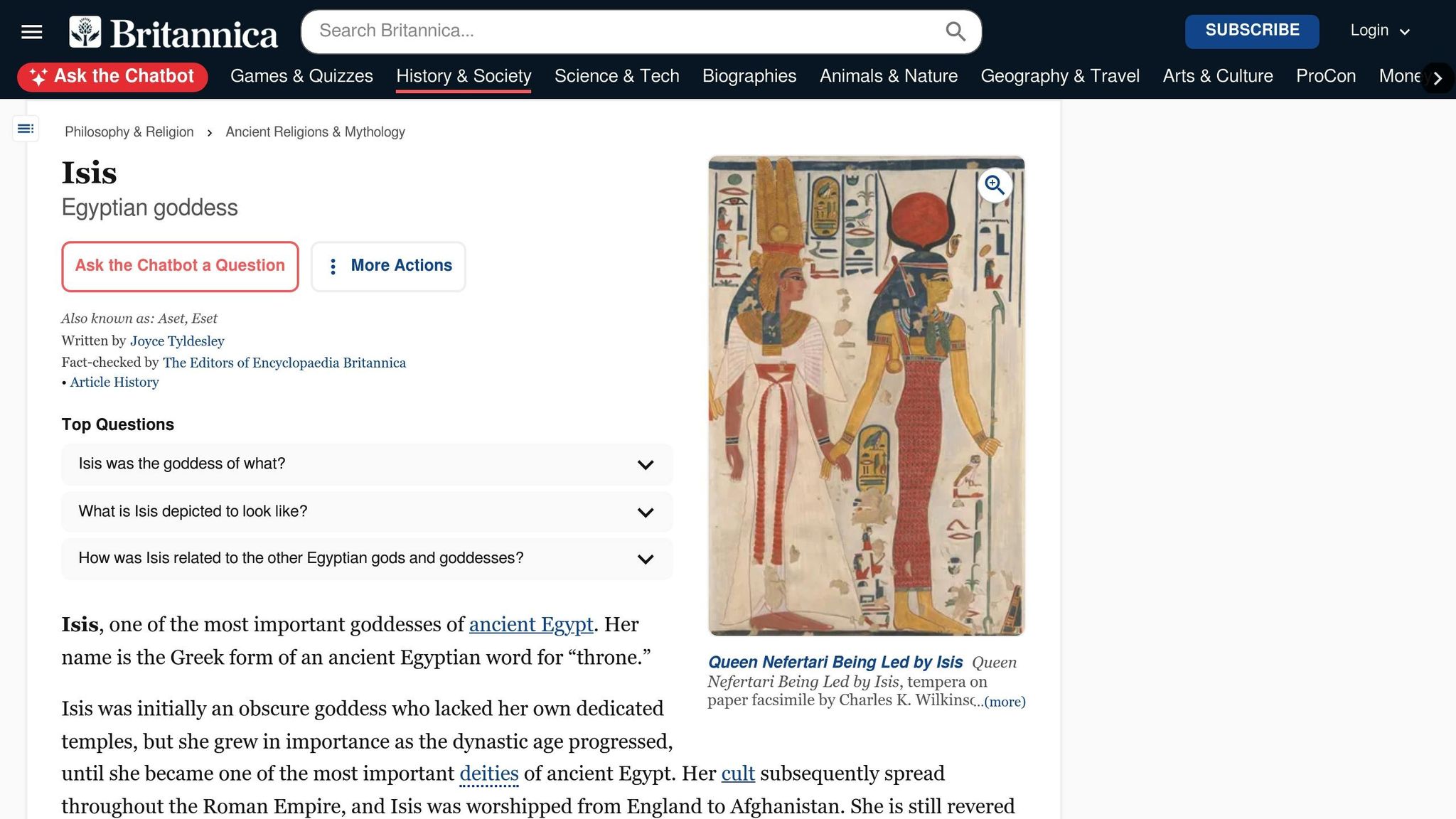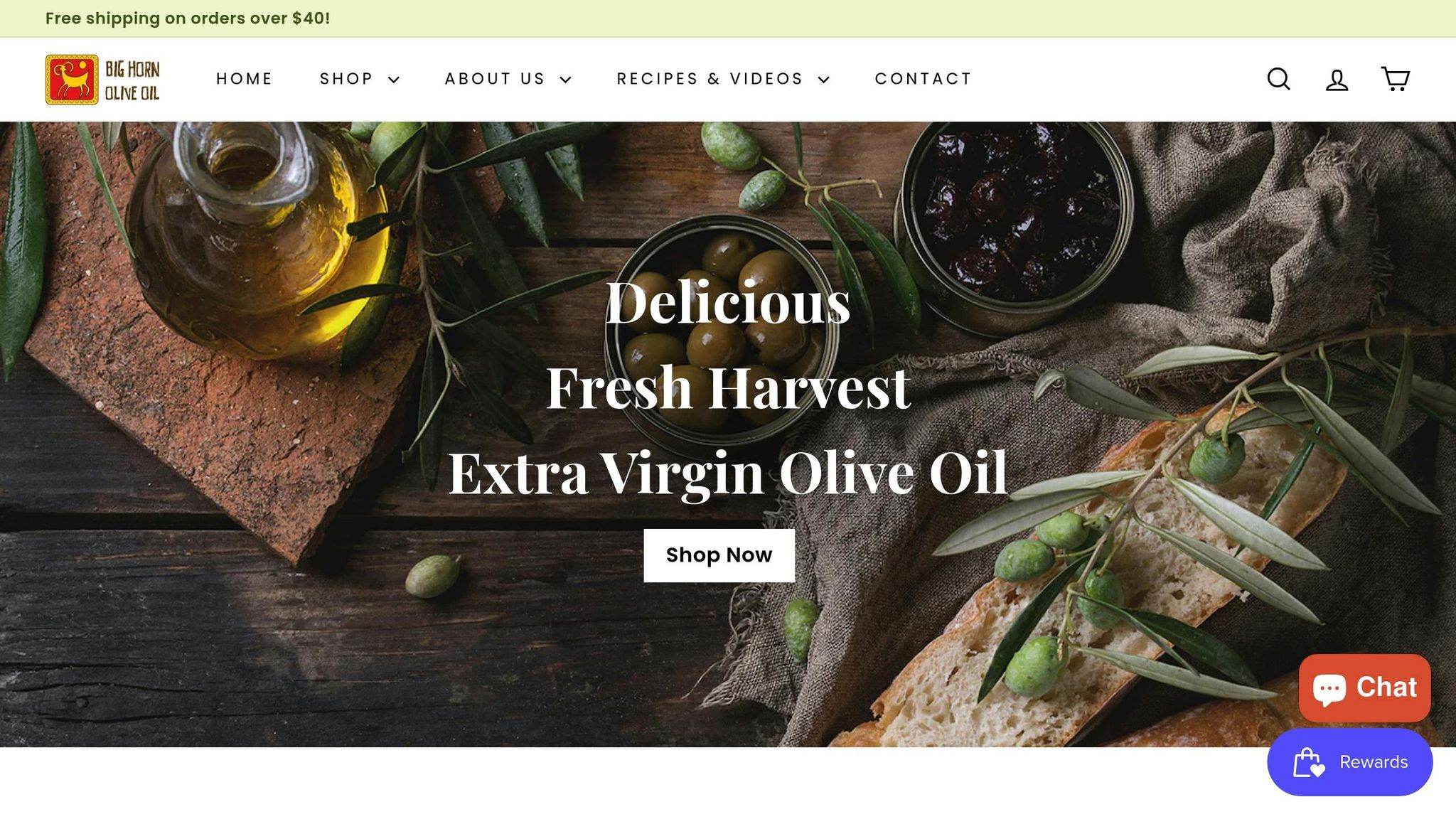Olive Oil in Mythology and Legends
Olive oil has been a symbol of vitality, peace, and divine connection for over 6,000 years. Across ancient civilizations, it played a central role in trade, rituals, and daily life, deeply intertwined with mythology and legends. From Athena's gift of the olive tree in Greek mythology to its use in sacred anointing ceremonies, olive oil has shaped human history and culture in profound ways.
Key Takeaways:
- Mythological Roots: Athena's creation of the olive tree symbolized wisdom and prosperity, while Egyptian goddess Isis linked olive cultivation to progress and knowledge.
- Symbolism: The olive tree represents resilience, peace, and renewal, with its branches used as emblems of harmony in ancient Greece and Rome.
- Daily Life: Beyond cooking, ancient societies used olive oil for bathing, lighting, cosmetics, and even athletic rituals.
- Trade and Wealth: Olive oil was a key trade commodity, with massive production seen in Mediterranean economies.
- Modern Legacy: Today’s producers honor ancient methods, ensuring quality and purity in olive oil production.
Olive oil’s enduring legacy connects ancient myths and practices to modern life, continuing to symbolize peace, wisdom, and prosperity.
Ancient Greek Olives - Gifts from A Goddess
Creation Myths: Divine Origins of Olive Oil
For ancient civilizations, olive oil wasn’t just a practical commodity - it was seen as a sacred gift from the gods. Myths surrounding its origins highlight the deep spiritual and cultural significance attached to this golden liquid, cementing its revered status across history.
Athena vs. Poseidon: The First Olive Tree
One of the most well-known myths comes from ancient Greece. In this tale, Athena, the goddess of wisdom, and Poseidon, the god of the sea, vied for the honor of becoming the patron deity of a newly founded city. Each offered a gift to the people: Poseidon struck the earth with his trident, creating a saltwater spring, while Athena planted her spear into the rocky ground, from which the first olive tree sprouted. The Athenians, recognizing the tree’s lasting value - providing food, oil, wood, and even shade - chose Athena as their protector and named the city Athens in her honor. This myth not only explains the origins of the olive tree but also elevates it as a divine blessing.
Egyptian Mythology: Isis and the Gift of Cultivation

In Egyptian stories, the goddess Isis is credited with introducing olive trees to humanity. She didn’t just provide the trees - she also taught people how to cultivate them and extract their precious oil. By linking olive cultivation to knowledge and progress, Isis reinforced the idea of olive oil as a marker of sophistication and civilization. Her teachings ensured that olive oil would be cherished not just for its practical uses but as a symbol of advancement and divine wisdom.
The Olive Branch: A Timeless Emblem of Peace
The olive branch has long been a symbol of peace and renewal, a tradition rooted in ancient mythology. In Roman legends, the introduction of olive trees to Italy is attributed to heroic figures like Hercules. Meanwhile, Minerva, the Roman equivalent of Athena, is said to have shared the knowledge of olive cultivation and oil production. These stories tie the olive tree and its oil to themes of harmony and prosperity, showing how its divine origins have shaped its enduring cultural importance.
Religious Practices: Olive Oil in Ancient Rituals
Olive oil held a sacred place in the rituals of ancient civilizations, symbolizing divine connection, purification, and spiritual favor. Its use in these ceremonies highlights its role as a bridge between the human and divine.
Anointing Kings and Athletes in Ancient Greece
In ancient Greece, olive oil was a key element in anointing ceremonies that marked significant events. Athletes applied olive oil before competitions as a tribute to the gods, while kings and warriors were anointed to signify divine approval and reinforce their authority.
Olive Oil in Early Christian Traditions
Early Christians incorporated olive oil into their rituals, drawing from Jewish sacramental traditions. Within Catholic, Anglican, and Orthodox practices, olive oil came to represent purity, healing, and divine blessings. Biblical texts often connect olive oil with joy, health, and sanctity, continuing the tradition of anointing priests and kings.
sbb-itb-4066b8e
The Olive Branch: A Global Symbol of Peace
Olive oil's sacred and ceremonial significance laid the groundwork for the olive branch to become a universal symbol of peace. Rooted in the traditions of the Mediterranean, the olive branch has long represented harmony and reconciliation.
Diplomatic Uses in Ancient Greece and Rome
In ancient Greece, those seeking favor or offering petitions - known as supplicants - carried an olive branch, or hiketeria, as a sign of peaceful intent when approaching gods or leaders.
The tradition continued in Rome, where envoys used olive branches during peace talks. Even opposing sides embraced this practice to signify their willingness to reconcile. Roman art and coinage frequently depicted the olive branch held by deities like Pax or Mars Pacifer, symbolizing the triumph of peace over conflict.
This timeless emblem connects the customs of antiquity with today's universal understanding of peace.
Modern Legacy: Ancient Olive Oil Traditions Today
The deep-rooted mythology surrounding olive oil remains alive and well. Today’s top producers draw from these ancient tales, infusing their craft with the timeless symbolism of peace, wisdom, and divine blessings. These sacred associations continue to inspire modern practices and set benchmarks for quality.
Ancient Traditions Meet Modern Quality Standards
Modern olive oil production reflects the precision of ancient methods, with rigorous quality checks ensuring both taste and health benefits. Producers stay true to the belief in olive oil’s healing properties by employing techniques that protect its naturally high antioxidant levels.
Cold-pressing and rapid processing - often completed within hours of harvest - are central to maintaining purity, mirroring the care taken by ancient artisans. Even the packaging reflects this blend of old and new, with olive branches and historical motifs incorporated into sleek, contemporary designs. This harmonious mix of tradition and modernity has become a hallmark of premium olive oil production.
This dedication to quality has given rise to brands that carry forward these ancient values in a way that resonates with today’s consumers.
Big Horn Olive Oil: Continuing the Ancient Legacy

Big Horn Olive Oil stands out as a shining example of how modern producers honor the past while meeting today’s exacting standards. Founded by Devan Stormont, the company sources Ultra Premium Extra Virgin Olive Oils made from olives that are cold-pressed within just two hours of harvest. This method reflects the care and urgency practiced by ancient olive oil makers.
Freshness is key to preserving olive oil's potency, and Big Horn ensures their products reach customers within three months of harvest. This commitment maintains the vitality and purity that ancient cultures cherished, delivering those same benefits to modern consumers.
The company’s offerings, such as the Estate Reserve Ultra Premium EVOO and single-origin varieties like Picual and Coratina Extra Virgin Olive Oil, highlight the dedication to purity and quality. Big Horn’s products, recognized internationally, uphold the standards that once made olive oil a symbol of heritage and diplomacy. Their Traditional 18-Year Aged Dark Balsamic Vinegar and Molto Denissimo 25-Year Aged Dark Balsamic Vinegar from Modena, Italy, further exemplify the craftsmanship and patience admired by ancient artisans.
Conclusion: Olive Oil's Lasting Impact
From the bustling streets of ancient Athens to the kitchens of today, olive oil has stood the test of time as a symbol of peace, wisdom, and prosperity. The myths surrounding this golden liquid reveal its deep connection to human history and culture.
Athena’s gift of the olive tree and Zeus’s olive branch are more than just stories - they laid the foundation for olive oil’s role in Mediterranean life. The ancient Greeks praised its many virtues, using it not only as a staple in their diets but also as a symbol of strength and honor. From anointing kings to celebrating victorious athletes, olive oil was seen as a source of vitality and favor.
Fast forward to today, and the olive oil industry continues to honor these traditions while embracing modern standards. Producers remain dedicated to preserving the freshness and purity that ancient artisans valued so highly. This connection between the past and present ensures olive oil remains an essential part of culinary and cultural life.
The olive branch, a timeless emblem of peace, still holds global significance. It graces the United Nations emblem and plays a role in countless diplomatic traditions, showing how ancient myths continue to shape cultural values across generations.
For those seeking an authentic olive oil experience, Big Horn Olive Oil offers a perfect blend of tradition and quality. Their fresh, cold-pressed oils, delivered within three months of harvest, echo the care and urgency of ancient methods - all while offering competitive pricing.
Olive oil’s legacy is more than just a collection of myths; it’s a bridge between history and modern excellence. Every drop of premium extra virgin olive oil carries the wisdom of ancient legends and the dedication of today’s artisans, ensuring its place in our culture for generations to come.
FAQs
What role did the myths of Athena and Isis play in shaping the cultural importance of olive oil in ancient times?
The stories of Athena and Isis reveal the profound symbolic importance of olive oil in ancient societies. In Greek mythology, Athena presented the olive tree to the city of Athens, embodying values like wisdom, peace, and prosperity. This gift elevated olive oil to a sacred status, often associated with rituals and seen as a sign of divine blessing. Meanwhile, in Egyptian mythology, Isis was credited with teaching humanity the skills to grow olive trees and extract their oil, connecting olive oil to knowledge and divine protection. These myths firmly established olive oil as a representation of abundance, spirituality, and cultural identity in both Greek and Egyptian traditions.
What significance did olive oil have in ancient religious and ceremonial traditions, and how does it continue to influence modern practices?
Olive oil has long been steeped in symbolism, playing a crucial role in ancient religious and ceremonial traditions. It often represented purity, divine favor, and protection. In ancient Egypt, pharaohs were anointed with olive oil during their coronation ceremonies, signifying their elevated status and connection to the divine. In Greece, it symbolized peace and prosperity, closely tied to the goddess Athena, who was believed to have gifted the olive tree to humanity. The Romans, on the other hand, used olive oil to consecrate priests and sacred objects, incorporating it into rituals like offerings and anointings.
This deep-rooted symbolism has endured through the ages. Even today, olive oil continues to feature prominently in religious ceremonies, cultural traditions, and even healing practices, underscoring its lasting spiritual and cultural relevance.
How do producers like Big Horn Olive Oil ensure their olive oil meets the high standards of quality and purity inspired by ancient traditions?
Producers like Big Horn Olive Oil maintain high standards of quality and purity by blending traditional methods with modern techniques. For instance, they stick to the age-old practice of cold pressing olives within 24 to 72 hours after harvest, which helps preserve the oil's fresh taste and rich flavor.
In addition to their traditional approach, they incorporate advanced testing to keep a close eye on critical factors like fatty acid composition, peroxide levels, and phenolic content. This careful attention ensures the olive oil stays free from defects and aligns with strict industry standards, creating a product that respects both time-tested methods and modern precision.

